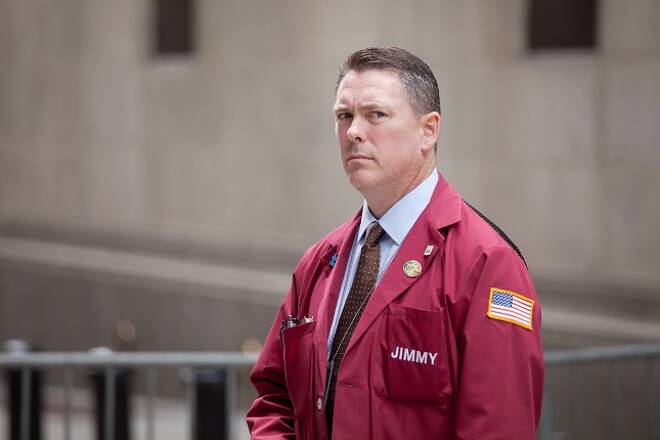Advertisement
Advertisement
“Don’t be Spooked by Stock Market Turbulence”
By:
Stock market investors should not be spooked by the return of volatility on U.S. and global stock markets, they should instead use it to their advantage.
This is the message from deVere Group, one of the world’s largest independent financial advisory organizations, as U.S. stocks fell into correction territory on the first day of the new quarter, triggering a ripple effect to other financial markets around the world.
The turbulence is largely due to investors becoming rattled over rising trade tensions between the U.S. and China – the world’s first and second largest economies – and major tech firms’ recent declines.
Tom Elliott, deVere Group’s International Investment Strategist, comments: “Stock market investors should not be spooked by the return of volatility on U.S. and global stock markets.
“We are emerging from an unusually long period of low volatility, and this makes recent sharp moves in stock prices feel like an important signal when, in all likelihood, it will prove largely irrelevant for long-term investors.
“Several themes are being used to describe Monday’s fall on Wall Street: fear that Trump will announce another set of tariffs on Chinese imports, Trump’s attack on Amazon’s low – but legal – corporate tax bill, and consumer and regulatory backlash against those tech companies who harvest and re-sell personal data to advertisers. None of these are sufficient triggers for a major correction outside of certain sectors, with tech looking the most vulnerable.”
He continues: “Indeed, the current correction feels like a continuation of March’s de-rating of tech stocks, as investors revaluate future earnings potential in the sector. Tech makes up about a quarter of the market cap of the S&P500, so it is important. But its problems shouldn’t be bringing down other sectors. Therefore stock price falls elsewhere on Monday – for example, discretionary goods and energy – are perhaps best described as ‘collateral damage’.”
Mr. Elliott goes on to add: “The sell-off in late January and early February felt more convincing, as a sharp rise in Treasury yields amid some buoyant wage and inflation data combined to convince investors that the days of cheap money are coming to an end. Risk assets, such as stocks, fell in response.
“A trade war with China certainly has the potential to be a trigger for a major sell-off, but we are not there yet. Otherwise, Treasury yields would have risen in recent weeks, in response to a likely rise in inflation coming from tariffs and import quotas. Instead, 10-year Treasury yields have remained in the 2.7 percent to 2.8 percent range.”
Nigel Green, the founder, and CEO of deVere Group says many investors will welcome this bout of volatility: “Some of the most successful investors embrace some volatility as major buying opportunities are always found where there are fluctuations.
“Fluctuations can cause panic-selling and mis-pricing. High-quality equities can then, for example, become cheaper, meaning investors can top up their portfolios and/or take advantage of lower entry points. This all, in turn, means greater potential returns.”
He concludes: “A professional fund manager will help investors take advantage of the opportunities that volatility presents and mitigate potential risks as and when they are presented.
“Many serious investors will be using this turbulence to create, maximize and protect their wealth.”
deVere Group is one of the world’s largest independent advisors of specialist global financial solutions to international, local mass affluent, and high-net-worth clients. It has a network of more than 70 offices across the world, over 80,000 clients and $12bn under advisement.
About the Author
Nigel Greencontributor
Advertisement
